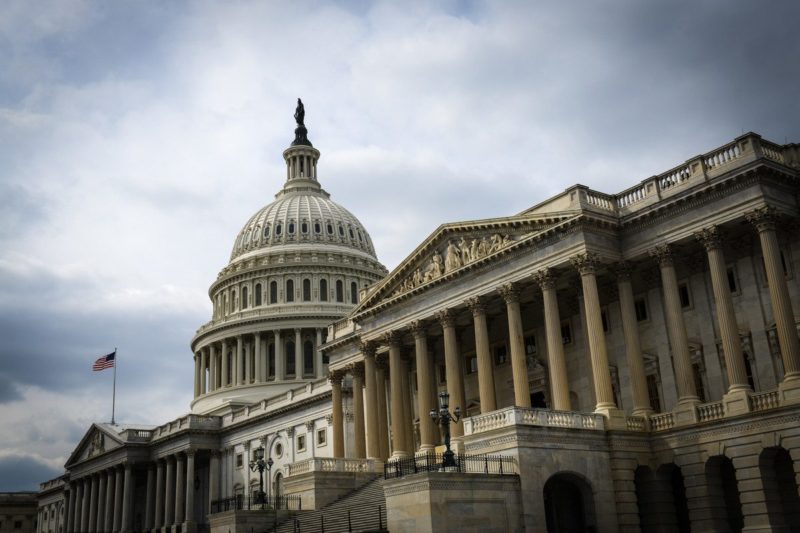House, Senate Divided on Zika Funding Levels While U.S. Infections Climb (Updated)
The CDC has reported 503 travel-associated cases of Zika in the United States and 701 acquired cases in U.S. territories. Dozens of pregnant people have contracted Zika under each scenario.

UPDATE, May 19, 10:24 a.m.: The U.S. House of Representatives passed the $622.1 million fiscal year 2016 Zika funding bill in a late-night vote Wednesday. Although the U.S. Senate’s $1.1 billion compromise runs through fiscal year 2016, Sen. Roy Blunt (R-MO) reportedly said that the funding would last through fiscal year 2017, setting up yet another conflict for a potential House-Senate conference committee to reconcile. White House officials maintain that the full $1.9 billion in aid is necessary.
Congress is divided on funding levels to combat the Zika virus as the reproductive health threat escalates.
The U.S. Senate on Tuesday advanced a bipartisan $1.1 billion emergency supplemental funding package for fiscal year 2016 as an amendment to the pending fiscal year 2017 Transportation, Housing and Urban Development appropriations bill (HR 2577). Across the Capitol, the U.S. House of Representatives is scheduled to vote Thursday on a $622.1 million bill (HR 5243)—about half of the Senate’s version and a third of the Obama administration’s original $1.9 billion request.
The Centers for Disease Control and Prevention (CDC) concluded that Zika causes microcephaly, an incurable neurological disorder that impairs brain and skull growth in utero, as well as other severe fetal brain defects. The threat of Zika has drawn attention to elected leaders’ neglect of women’s reproductive rights in many of the affected countries, advocates charge.
Zika is also linked to Guillain-Barré syndrome, an immune disorder leading to nerve damage and paralysis.
The CDC on May 11 reported 503 travel-associated cases of Zika in the United States and 701 acquired cases in U.S. territories. Dozens of pregnant people have contracted Zika under each scenario.
House Republican leaders are seeking to take credit for providing $1.2 billion in Zika aid. House Speaker Paul Ryan (R-WI) and Majority Leader Kevin McCarthy (R-CA) both counted the $589 million in leftover Ebola funds that the Obama administration was forced to transfer to the Zika fight amid congressional inaction. Ryan touted that the House measure “ensures not a single taxpayer dollar is used to fund abortions.”
The text of the House legislation specifies that the $622.1 million draws from two sources—$352.1 million rescinded from various agencies’ Ebola funds and $270 million from the Department of Health and Human Services budget.
House Appropriations Committee Chair Hal Rogers (R-KY), who introduced the legislation, continues to allege that the Obama administration “has still not provided full accounting and justification for its request for Zika funds.”
White House officials in April characterized the Ebola funds as a “temporary fix” and pressed Congress for the full $1.9 billion. The White House has threatened to veto the House’s offer.
White House spokesperson Josh Earnest during a Tuesday press conference outlined the reasons for the administration’s disapproval.
“The first concern is that it is woefully insufficient given the significant risk that is posed by Zika. That’s not just my own personal analysis—that actually is the analysis of our public health professionals who advise the administration about what should be included in the supplemental appropriations package that we sent up to Congress nearly three months ago,” he said.
“The other concern that we have with the House bill isn’t just that the amount of resources committed is much smaller; the funding would be offset by taking away resources that are currently being used to protect the American people from Ebola,” Earnest added. “And traditionally, when Congress has been faced with a public health emergency, they haven’t wasted a lot of time looking for funding offsets.”
Sens. Patty Murray (D-WA) and Roy Blunt (R-MO) brokered the Senate compromise, which passed 68-29. Florida Sens. Bill Nelson (D) and Marco Rubio (R) pressed for the full $1.9 billion as the number of diagnosed Zika cases in their state climbed to 116 as of Tuesday. Their amendment failed 50-47, below the 60-vote threshold needed for procedural votes.
Separately, Senate Republican Whip John Cornyn (TX) proposed $1.1 billion paid for through Affordable Care Act cuts, but his amendment failed 52-45.
House Republicans this week attempted to pass legislation that took aim at pesticide regulations by rebranding the Reducing Regulatory Burdens Act (HR 897) as the Zika Vector Control Act. The legislation fell short of the requisite two-thirds of lawmakers voting to pass bills considered under a suspension of the rules.
